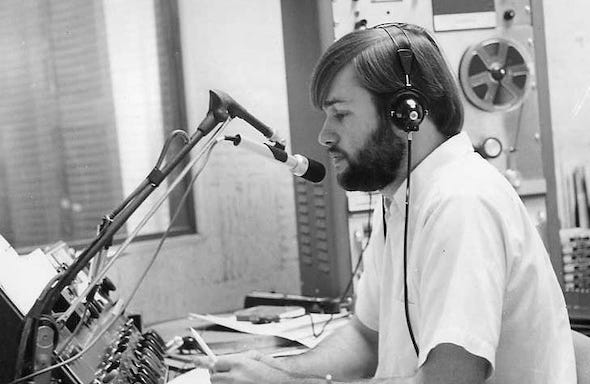The first guest article about life after journalism comes from a dear friend and colleague from our days together in Tampa area television. It was awesome to watch Lalita grow her skill set from producer to executive producer and manager.
Did those years as a television journalist prepare her for life after TV? You bet it did!
Is There Life After Journalism?
Lalita Llerena
The real question is: is there life without journalism? You see, I believe once a journalist, always a journalist. The instinct of a journalist is like no other. You may leave the newsroom behind, but you’re still a curious communicator who does your research, asks all the right questions and pays close attention to the important details. If you were ever a good journalist, no matter what role you play now, chances are you’re persistent, passionate and objective. Journalism is in your blood. It’s what you do, no matter what you do. That’s powerful stuff.
After 12 years as a TV news journalist, I made the leap into communications. My journalism background proved to be extremely valuable in all the roles I played since – from community engagement specialist to senior communications director to internal communications manager.
Since I have experience inside a local TV newsroom, it’s natural for me to continue strengthening my relationships with reporters, assignment editors and producers. Having done what they do for more than a decade, I respect and acknowledge their deadlines and workloads. Without even realizing it, I’m helping make their job easy because I used to do it. By providing them with all the elements they need to make a good story, I help them pull off their assignment seamlessly. That’s because I know exactly what they’re looking for in a story pitch and help them execute it effectively.
Since I had to write for a living as a TV journalist, I am able to interview subjects and tell their stories creatively and effectively. As a journalist, you are already writing the story in your head as you’re chatting with your interviewee. You know what to ask initially and depending on their answer, you know what follow-up questions to ask. This is true for any sort of communications assignment – whether it’s a video, podcast, blog or company news email. Everything involves a story and you’re a storyteller. Be a journalist and you’ll nail it each time.
Even if you’re not considering a career in communications, the skills you acquire during a journalism career can be translated well anywhere. For instance, think about your sense of urgency. No matter what type of journalist you were, I bet you consistently wrote, proofread and made important decisions under extremely tight deadlines. And if you worked in TV, you probably had to turn important facts into on-air stories within seconds. Likewise, details are extremely important in journalism because one mistake is seen by hundreds, if not thousands (or millions in many cases) of people. It is vital to communicate the accurate information at all times.
It might be a huge relief to walk away from that never-ending newsroom stress but guess what you walked away with? The innate ability to thrive and excel in deadline-driven environments where multi-tasking and accuracy are crucial. Any organization would appreciate and value those strengths.
If you can’t tell, I am proud of where I come from and wouldn’t trade my journalism background for anything. I truly believe it’s shaped me into the dedicated, passionate storyteller I am today. I feel very fortunate to have had the opportunities to work with some remarkable people at amazing organizations. Along the way, I’ve never stopped being a journalist and I am better off for it.
Thank you, Lalita! We’ll hear from other former journalists in future newsletters.
Next Newsletter
How is Artificial Intelligence impacting journalism? We’ll share some surprising answers in the next Real Journalism Newsletter.
Comments and Questions Welcome
I hope these thoughts are helpful to you as a journalist or news consumer. Please share your comments and questions and I’ll respond as quickly as I can. If you like what we’re doing in this newsletter, please let your friends know about it so they can subscribe.
Newsletter Purpose
The purpose of this newsletter is to help journalists understand how to do real journalism and the public know how they can find news they can trust on a daily basis. It’s a simple purpose, but complicated to accomplish. I’ll do my best to make it as clear as I can in future newsletters.








